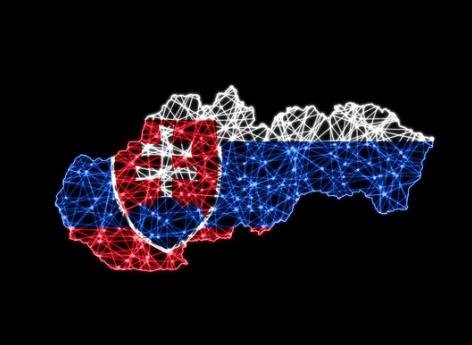Russia is set to enforce strict new rules on cryptocurrency mining starting January 1, 2025. These measures, which include a six-year ban in certain regions and seasonal restrictions elsewhere, aim to alleviate energy concerns while shaping the country’s crypto mining landscape.
Key Regions Face Total Bans
The forthcoming restrictions will completely outlaw cryptocurrency mining activities in 10 regions, including Dagestan, Chechnya, and the Donetsk and Lugansk People’s Republics. Both mining pools and individual operations are affected, marking a significant shift in Russia’s approach to managing its energy resources and the burgeoning crypto sector.
Interestingly, while these areas face outright prohibitions, they represent a carefully selected set of locations where energy strains are acute. The targeted approach demonstrates the government’s nuanced understanding of the regional dynamics involved.

Seasonal Restrictions in Major Hubs
In contrast, mining powerhouses such as Irkutsk, Buryatia, and Zabaikalsky will face seasonal limitations rather than blanket bans. Initially, mining activities will be curbed during peak energy consumption periods from January 1 to March 15. By late 2025, these restrictions will extend to cover November through mid-March, reflecting a growing emphasis on mitigating winter energy crises.
For Irkutsk, a key player in Russia’s mining ecosystem due to its low-cost electricity, this decision allows continued operations outside the restricted periods. This seasonal approach provides some breathing room for the industry while still addressing grid stability concerns during high-demand months.
The Road to Refined Legislation
These changes stem from Russia’s ongoing legislative evolution in cryptocurrency regulation. Signed into law earlier in 2024, the initial proposals suggested bans across 13 regions. However, subsequent refinements spared some critical mining hubs, ensuring that the industry’s backbone areas remain operational under specific conditions.
BitRiver, a major player headquartered in Irkutsk, exemplifies the stakes at hand. Known for hosting Russia’s first large-scale crypto data center, the company’s operations underscore the strategic importance of Irkutsk in the global mining map. Yet, as of now, BitRiver has not commented on how these new restrictions will impact its activities.
Balancing Industrial Growth and Energy Security
The new policies reflect Russia’s attempt to strike a delicate balance. The country remains one of the world’s leading crypto mining destinations, thanks to its abundant energy resources and relatively low electricity costs. At the same time, rising energy demands and geopolitical pressures have pushed the government to rethink its strategy.
Rather than imposing a blanket ban, these measures highlight a move towards targeted regulation. The focus on seasonal restrictions in key hubs indicates a willingness to preserve the industry’s economic contributions while addressing energy sustainability concerns.
A Snapshot of the Measures
To summarise the core changes:
- Total bans: Implemented in 10 regions, effective from 2025 to 2031.
- Seasonal restrictions: Applied in Irkutsk, Buryatia, and Zabaikalsky during peak periods.
- Extended restriction windows: Starting late 2025, mining limits will include November to mid-March.
This careful balancing act could serve as a model for other nations grappling with similar challenges, blending industry priorities with energy management.


 Bitcoin
Bitcoin  Ethereum
Ethereum  Tether
Tether  XRP
XRP  USDC
USDC  JUSD
JUSD  TRON
TRON  Lido Staked Ether
Lido Staked Ether  Dogecoin
Dogecoin  Figure Heloc
Figure Heloc  Cardano
Cardano  WhiteBIT Coin
WhiteBIT Coin  Wrapped stETH
Wrapped stETH  Bitcoin Cash
Bitcoin Cash  Wrapped Bitcoin
Wrapped Bitcoin  USDS
USDS  Binance Bridged USDT (BNB Smart Chain)
Binance Bridged USDT (BNB Smart Chain)  Monero
Monero  LEO Token
LEO Token  Wrapped eETH
Wrapped eETH  Hyperliquid
Hyperliquid  Chainlink
Chainlink  Canton
Canton  Ethena USDe
Ethena USDe  Coinbase Wrapped BTC
Coinbase Wrapped BTC  Stellar
Stellar  WETH
WETH  USD1
USD1  Zcash
Zcash  Litecoin
Litecoin  USDT0
USDT0  sUSDS
sUSDS  Dai
Dai  Avalanche
Avalanche  Sui
Sui  Shiba Inu
Shiba Inu  Hedera
Hedera  Ethena Staked USDe
Ethena Staked USDe  PayPal USD
PayPal USD  World Liberty Financial
World Liberty Financial  Tether Gold
Tether Gold  Rain
Rain  Toncoin
Toncoin  Cronos
Cronos  Polkadot
Polkadot  Uniswap
Uniswap  Mantle
Mantle  Bitget Token
Bitget Token  MemeCore
MemeCore  Falcon USD
Falcon USD  PAX Gold
PAX Gold  Aave
Aave  OKB
OKB  Bittensor
Bittensor  Pepe
Pepe  BlackRock USD Institutional Digital Liquidity Fund
BlackRock USD Institutional Digital Liquidity Fund  Circle USYC
Circle USYC  Global Dollar
Global Dollar  HTX DAO
HTX DAO  Jupiter Perpetuals Liquidity Provider Token
Jupiter Perpetuals Liquidity Provider Token  NEAR Protocol
NEAR Protocol  Pump.fun
Pump.fun  syrupUSDC
syrupUSDC  Ethereum Classic
Ethereum Classic  Jito Staked SOL
Jito Staked SOL  Binance-Peg WETH
Binance-Peg WETH  Internet Computer
Internet Computer  Sky
Sky  Ripple USD
Ripple USD  Ondo
Ondo  Pi Network
Pi Network  Aster
Aster  BFUSD
BFUSD  Solana
Solana  Binance Bridged USDC (BNB Smart Chain)
Binance Bridged USDC (BNB Smart Chain)  Wrapped BNB
Wrapped BNB  KuCoin
KuCoin  Gate
Gate  Binance Staked SOL
Binance Staked SOL  Worldcoin
Worldcoin  USDD
USDD  Ethena
Ethena  POL (ex-MATIC)
POL (ex-MATIC)  Rocket Pool ETH
Rocket Pool ETH  Quant
Quant  Official Trump
Official Trump  Cosmos Hub
Cosmos Hub  Aptos
Aptos  MYX Finance
MYX Finance  Algorand
Algorand  Lombard Staked BTC
Lombard Staked BTC  USDtb
USDtb  Function FBTC
Function FBTC  Polygon Bridged USDC (Polygon PoS)
Polygon Bridged USDC (Polygon PoS)  Superstate Short Duration U.S. Government Securities Fund (USTB)
Superstate Short Duration U.S. Government Securities Fund (USTB)